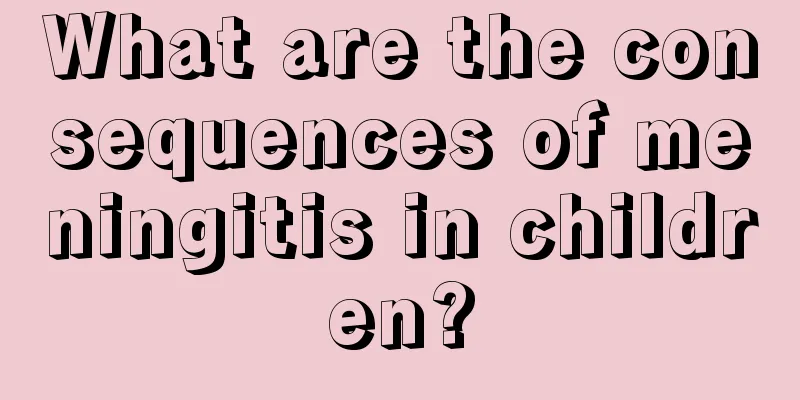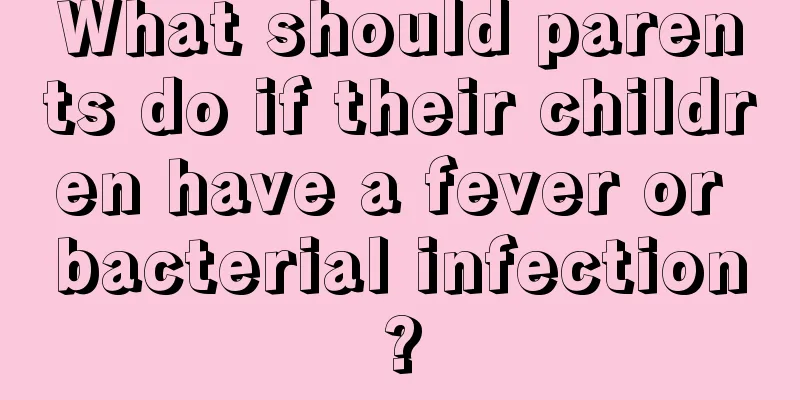What are the consequences of meningitis in children?

|
If a child develops meningitis, it is a serious condition and the child must go to the hospital for treatment in time. It cannot be treated at home. At the same time, everyone should also pay attention because many people do not know what meningitis is, so many parents do not pay much attention to it. So now the editor will give you a detailed introduction. Meningitis is an infection of the central nervous system. The four most common pathogens that cause meningitis are: (1) viruses; (2) bacteria; (3) tuberculosis; and (4) fungi (molds). After being infected with these four pathogens, most people initially have the same symptoms: fever, headache, runny nose, sore throat, nausea, vomiting, etc. These symptoms are very similar to those of a cold, so they are often ignored, thinking that they just have a cold and that they can get better by drinking water, resting or taking some cold medicine. However, as the disease progresses, severe headaches and frequent vomiting will occur. At this time, the person will become weak and listless. At this stage, the condition is actually quite serious. If the patient also experiences convulsions, coma, etc., it indicates that the brain substance is damaged and rescue is very difficult, usually resulting in either death or disability (paralysis). The main manifestations are: 1. High fever (40℃), stiff neck, severe headache, loss of appetite, confusion, vomiting, convulsions, fatigue, drowsiness, sensitivity to light, small blood spots on the skin, skin rash {especially in the armpits, hands, and feet}. These symptoms of meningitis are similar to those of colds and are often the cause of misdiagnosis. Symptoms may change within one to two days, and some may become life-threatening within hours. 2. In infants and newborns, high fever, headache, and stiff neck are not typical symptoms, and sometimes low temperature may occur instead. The symptoms experienced by this group of patients include: high-pitched and continuous crying, unusual drowsiness, poor appetite, extreme sensitivity, and some having swollen fontanelles. 3. In the elderly, the above symptoms may or may not appear, but they may show latent symptoms such as confusion and dullness. 4. Severe bacterial meningitis may also cause symptoms such as shock, coma or convulsions {epileptic-like}. Therefore, it may also happen to adults, and everyone should pay more attention to it. At the same time, children should be allowed to develop good living habits. Parents should also pay attention to their children’s daily diet. Don’t eat too much greasy or spicy food at this time. |
<<: What foods are better for children with indigestion?
>>: Is rubella contagious in children? How to treat and prevent it?
Recommend
How to make baby vegetable noodles
Generally, babies can eat complementary foods at ...
What to do if a three-year-old child has a hunchback
When parents are taking care of their children, i...
What causes acne on children's foreheads?
When children reach puberty, they often develop m...
What is the height and weight of a one year and three month old baby?
As the baby develops and grows day by day, from a...
Adverse reactions to the first injection of pentavalent combination
Children have poor body resistance and are easily...
Newborn baby twists and turns while sleeping
Some parents will find that their babies keep twi...
Newborn baby lying on his side
When a newborn turns sideways by himself, you don...
What to do if your child has a fever of 37.3
Children's resistance is relatively poor, esp...
What is the reason why babies walk with their feet turned inward?
Nowadays, every family with a baby treasures the ...
What to do if your child has recurrent thrush
Many breastfeeding infants are prone to thrush, a...
What are the symptoms of conjunctivitis in children?
We all know that children are very active. When t...
What should I do if my baby has mild anemia?
Once there is a little problem with the child'...
What are the fruit juice combinations for children?
As we all know, fruits are rich in nutritional va...
What disease does the child have if he has a headache?
Generally speaking, children will not suffer from...
Is it okay for babies to use air conditioning in winter?
Winter is a difficult season for younger babies. ...









